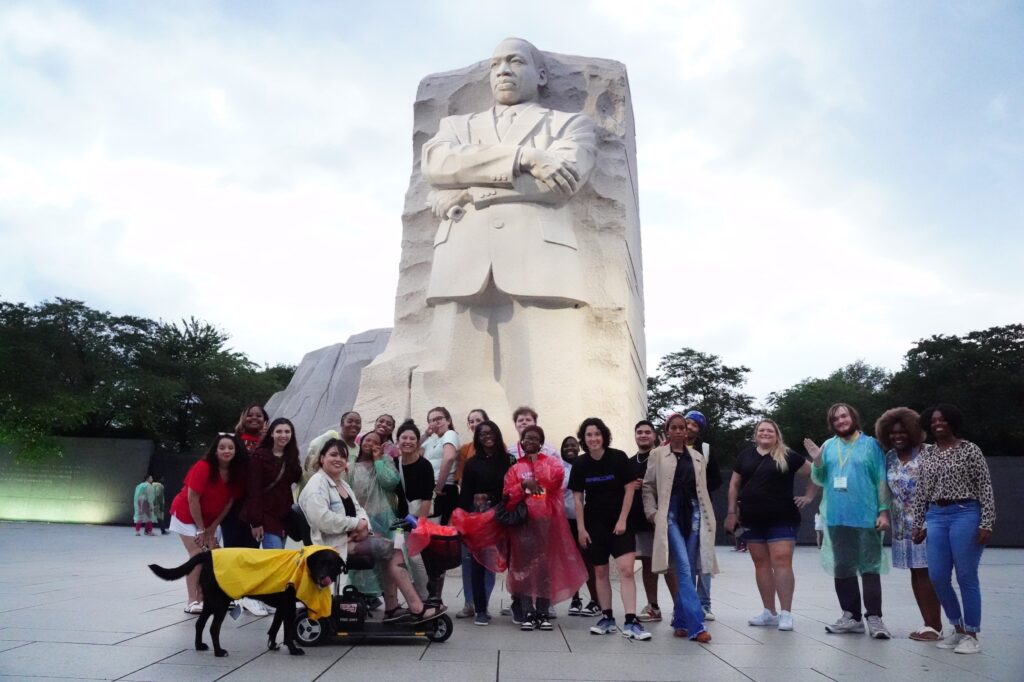By Eddie Koen, President of the Institute for Educational Leadership (IEL)
As we come together on Monday to celebrate Martin Luther King Jr., venerated as the focal point of the civil rights movement, it is a time not only to reflect on the profound legacy of Dr. King but also to envision a future where his dream of equality and justice can become a reality for all.
Martin Luther King Jr. Day is a time for contemplation of his radicalized love and policy, particularly in a moment of crisis. We are in a crucial time in our nation, in the middle of multiple quiet educational crises–chronic absenteeism, plummeting student achievement, rise of mental health issues and suicides, and schools and educators who are unfairly burdened to turn around mounting and insurmountable problems. Education is at the forefront of the fight for equity and justice for our most vulnerable communities, children, and families. Where do we stand in these moments of discomfort and inconvenience?
At the Institute for Educational Leadership (IEL), we know that by helping our youth develop the competencies and character they need to thrive, we can support entire generations of active citizens with the potential to break the cycle of poverty and inequity that has held us back from realizing his dream.
This year, Martin Luther King Jr. Day coincides with the 2024 Iowa caucus, marking the beginning of an election year that is perhaps more important for public education than any other in recent decades. It is a crucial time for our nation, and as we honor what Dr. King stood for, we must look ahead to the future we wish to shape and identify the assets we will need to get there.
Molding the robust education system we need to arrive at this brighter future requires equally robust leadership — from policymakers and education decision-makers to our youngest, emerging leaders. This has perhaps never been more necessary than it is today, as this dynamic period in history continues to create challenges that communities everywhere must navigate.
Throughout our six decades of serving communities nationwide, IEL has continually found inspiration in Dr. King’s revolutionary vision. We recognize that our mission aligns seamlessly with the principles he championed: to lift up underserved adult and youth leaders and build the knowledge, skills, and abilities needed to transform their communities through education with equity-driven solutions. By cultivating this type of leadership capacity at all levels, we believe we can drive meaningful change for communities, families, and, most importantly, the children who hold the promise of our future.
We have an obligation to provide the resources and platforms these changemakers need to grow in pace with our ever-changing world. We must also create spaces for these leaders to connect and establish strong leadership networks. Doing so can give them opportunities to learn from the experiences of those engaged in similar efforts across the country — all while contributing invaluable learnings of their own born out of the work in their community.
IEL’s services meet the needs of leaders to create more equitable communities through stronger education systems. We listen, learn, and adapt to reflect their experiences. This constant iteration reflects an approach rooted in “love in action” — striving to discover what works best for each unique community from the voices of those doing the work, recognizing that meaningful change arises from the ground up.
This work takes many shapes and forms for us. Our Coalition for Community Schools team provides technical support to communities all over the country who are building state coalitions for Community Schools or implementing the Community Schools strategy.
To tackle the problems we face in our current systems, it’s essential that the proposed solutions reflect practices that are most effective or relevant in their local contexts. That’s why we’ve partnered with cohorts of Community School leaders and Principals in multiple states to co-design Micro-Credentials in Collaborative Leadership. The coaches are from within their own community and cultural contexts remain a top priority throughout the courses.
A third example is our Ready to Achieve Mentoring Program, which supports career pathways for BIPOC youth with disabilities. This program relies on the partnerships of local community organizations and businesses for mentoring, career opportunities, and activities that build the confidence and skills of the youth, as well as provide services that serve the unique needs they might have.
It is important to recognize that Martin Luther King Jr. Day is the only federal holiday designated as a National Day of Service — a chance for people everywhere to embrace this notion of love in action in their own way and within their own communities.
Let us keep Dr. King’s dream alive through our commitment to transformative leadership and a relentless pursuit of a better tomorrow. Let us honor the legacy of a visionary leader by continuing the march towards justice, guided by the principle that love in action can and will change the world.
